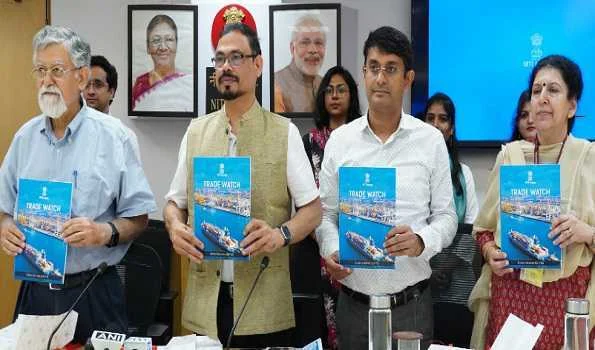New Delhi, July 16 . NITI Aayog (National Institution for Transforming India), apex public policy think tank of India, revealed its “Trade Watch Quarterly” publication for the third quarter of the Financial Year 2025. The focus of this edition is on measuring the implications of tariffs imposed by the United States on India’s export competitiveness.
Dr Arvind Virmani, Member of NITI Aayog, released the edition and congratulated the entire team for providing in-depth insights about the latest trade turbulence and India’s status in the current trade evolution rounds. He also pointed towards the rising competitiveness, innovation, and strategic efforts to expand India’s presence in key markets such as the United States.
This report presented a data-driven picture of current economic health, including the Quarter 3 merchandise exports grew to the mark of 3pc (approx $108.7 billion), service surplus growth of $52.3 billion. The growth of the service sector is driven by a 17 pc growth in India’s service exports. This also shows the optimism of global consumers in the Indian economy. India also emerged as the world’s fifth-largest exporter with an investment of $269 billion in Digitally Delivered Services (DDS).
The Trade Watch Quarterly report also highlighted that India can leverage the opportunity to expand its footprint in the US market. It’s especially for the sectors such as pharmaceuticals, textiles, electric machinery, and others.
The third Trade Watch Quarterly report pointed out the importance of the United States as a key trade destination for India. The report suggested some policy shifts, including targeted export promotion, deep integration into global value chains, and service-focused trade agreements.
The report also highlighted the key sectors, including digital trade and cross-border data flows, including agility in policymaking on making new trade alignments. This thematic edition serves as a base for policymakers, industry, and academia to prioritize key policies regarding trade.
. SAS PRS










